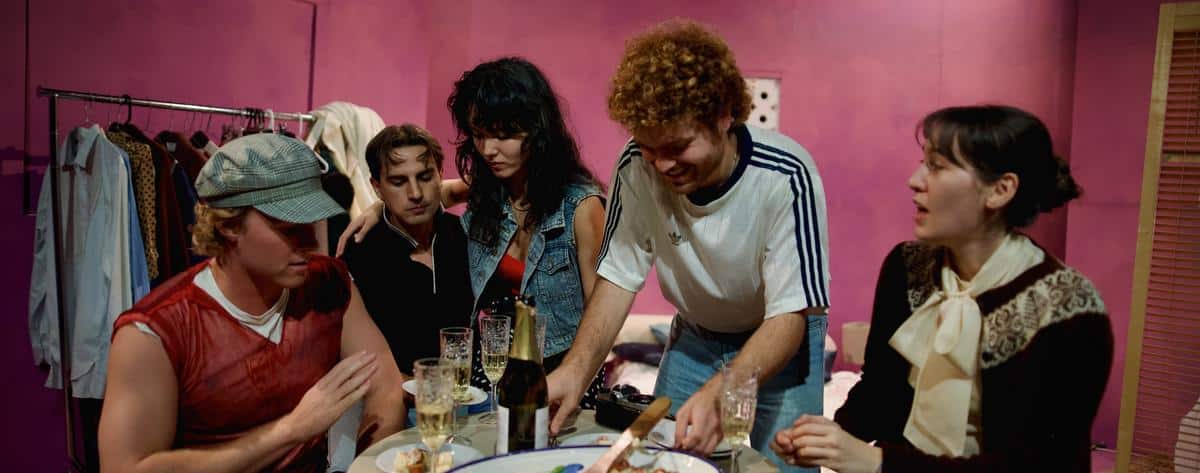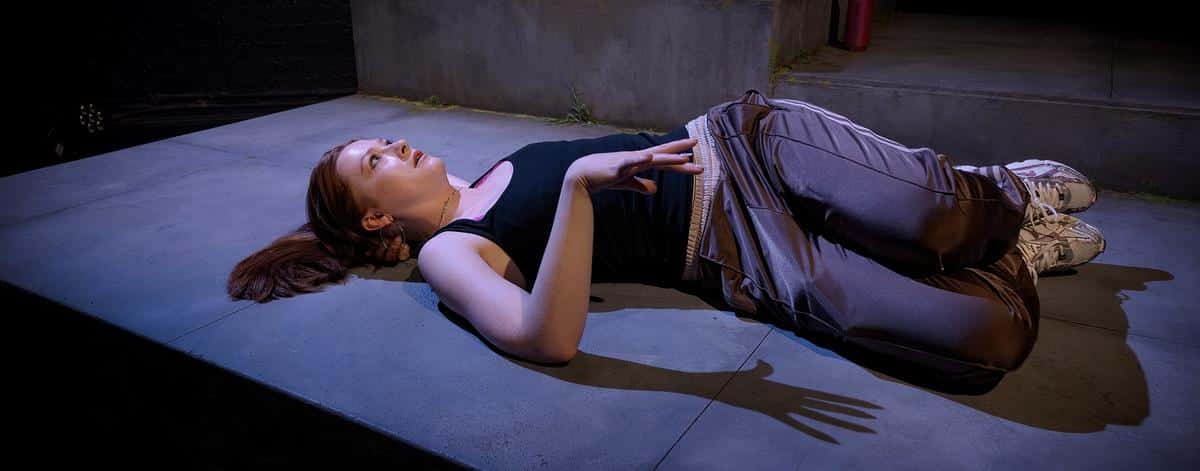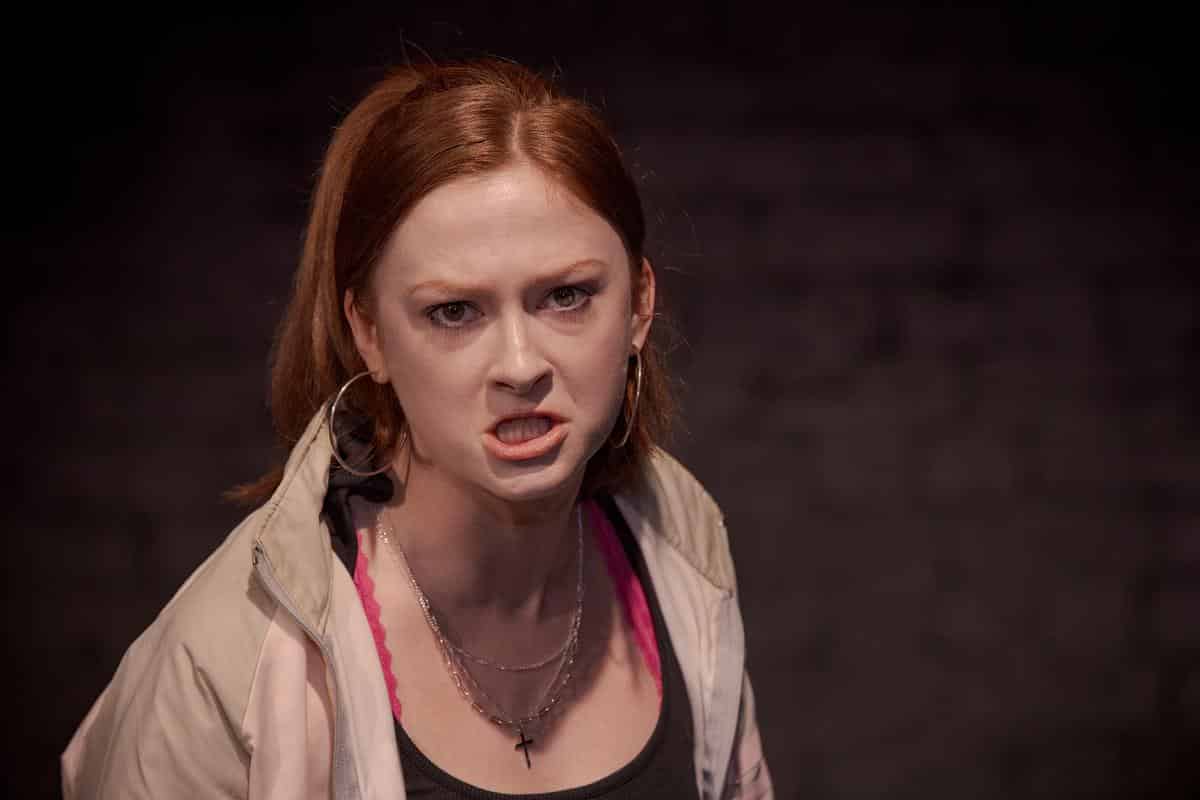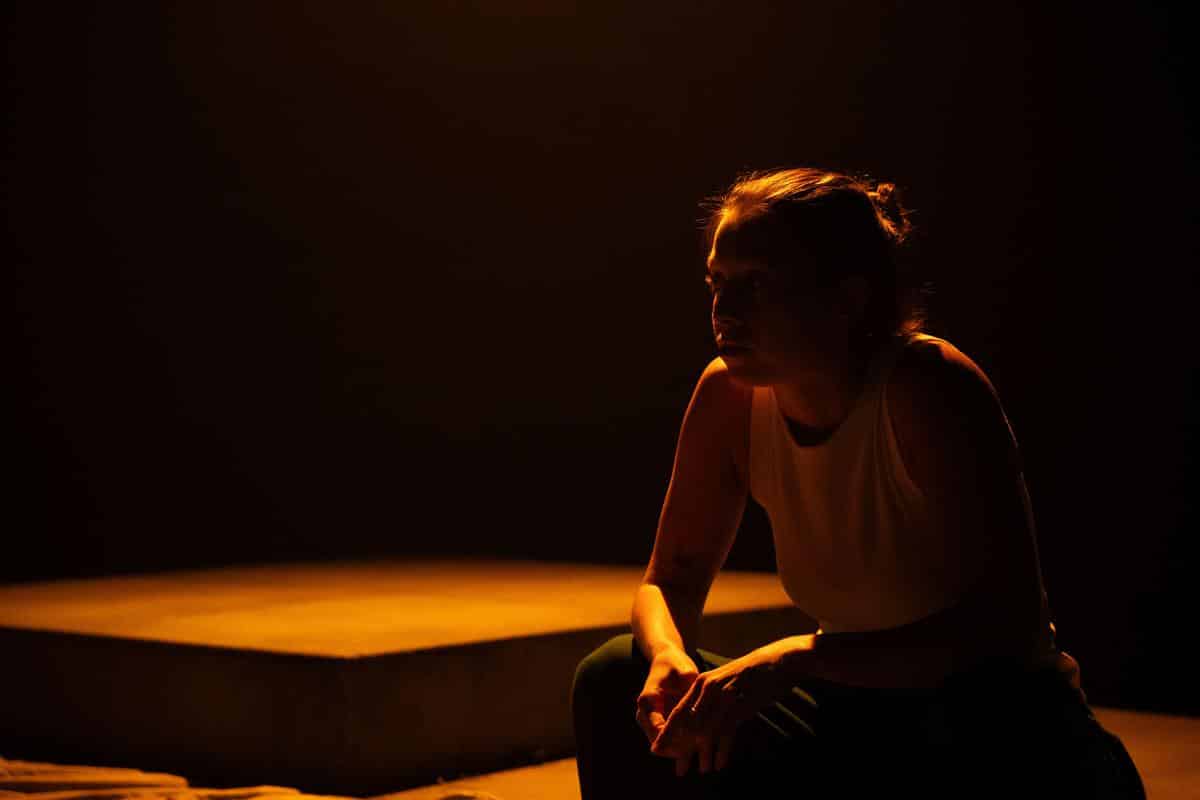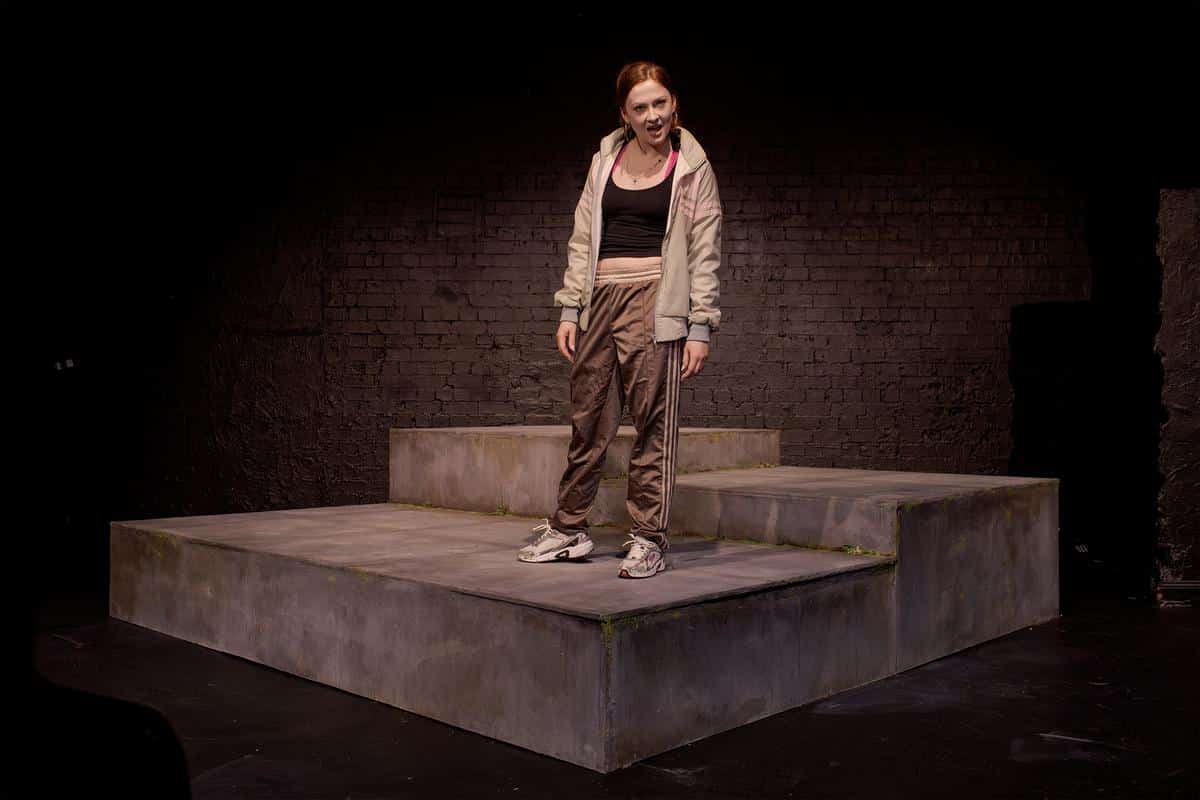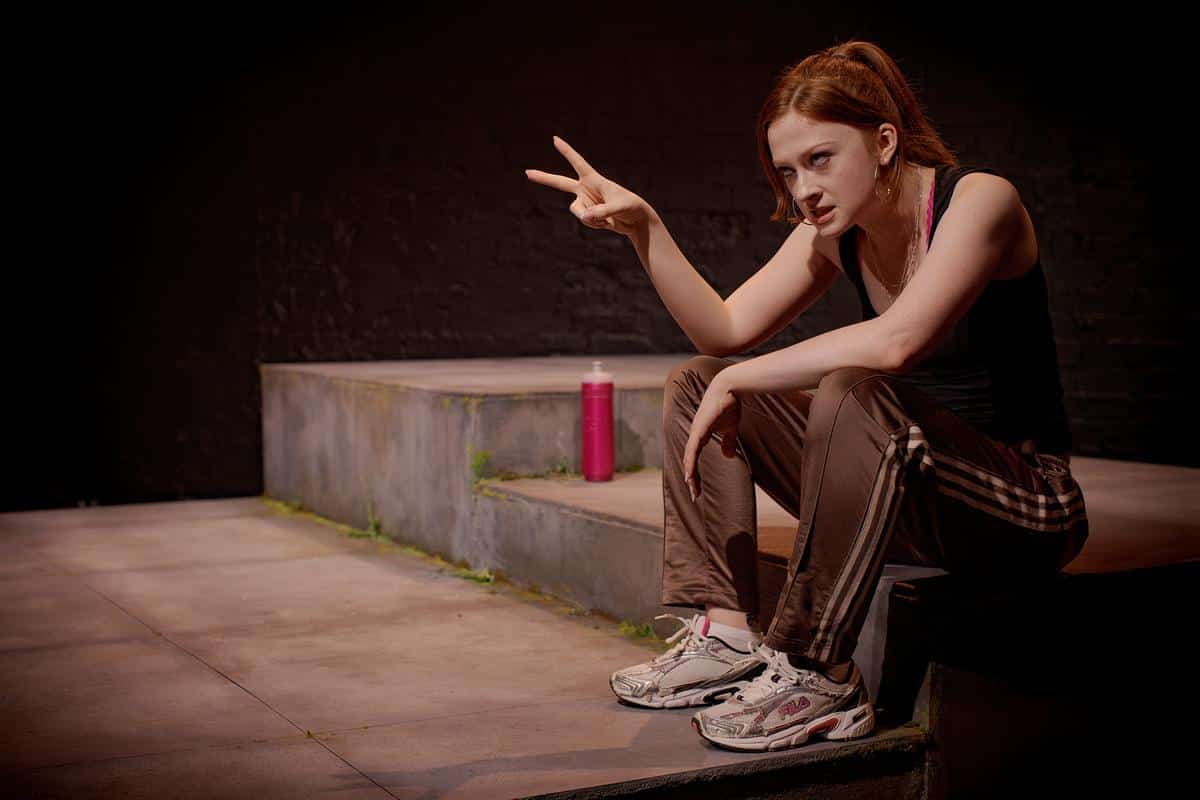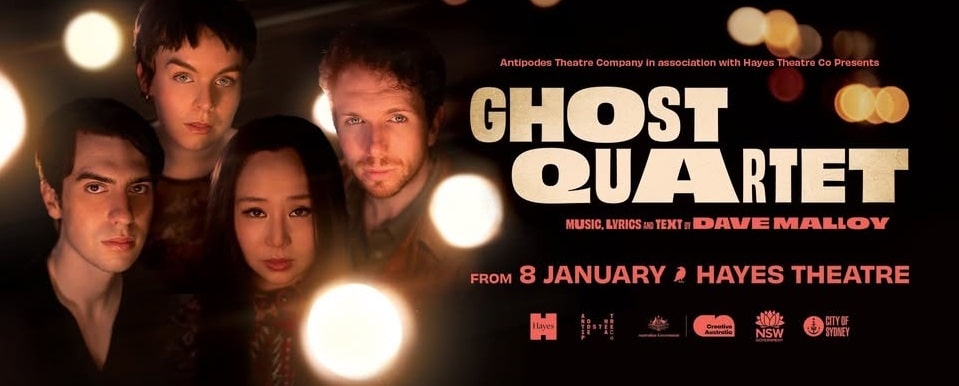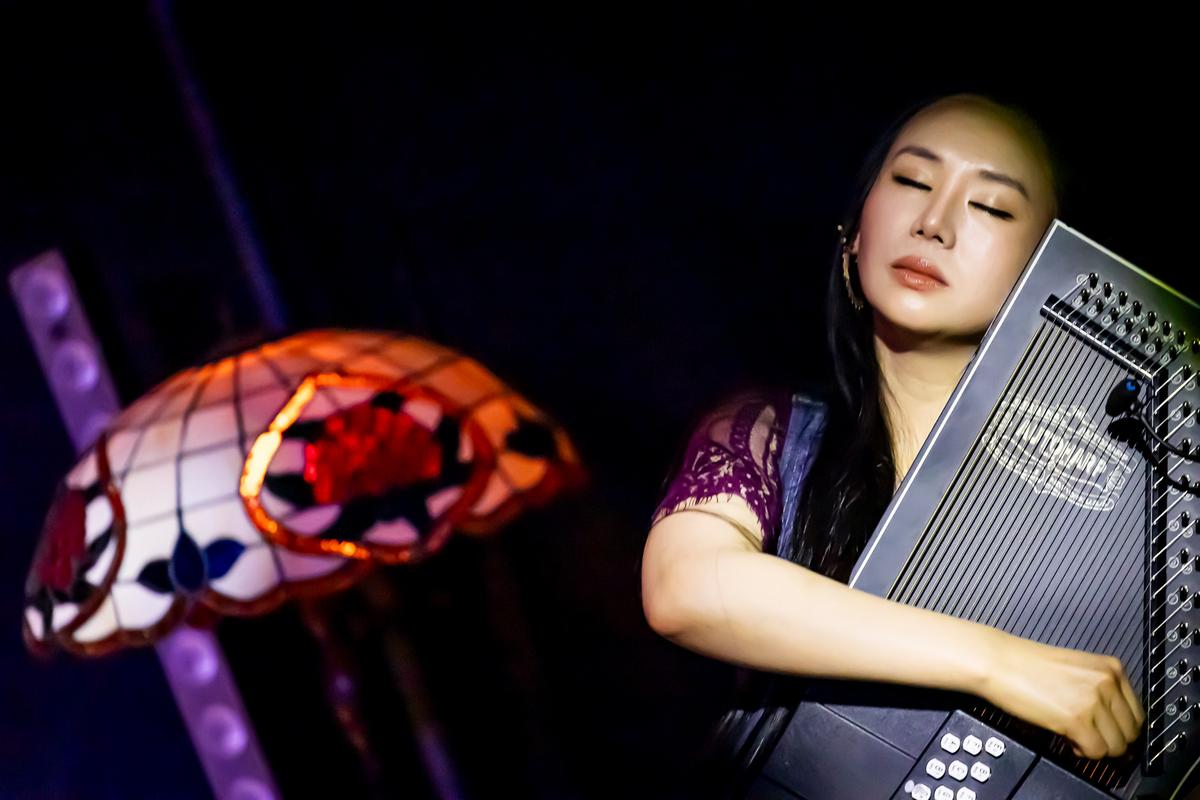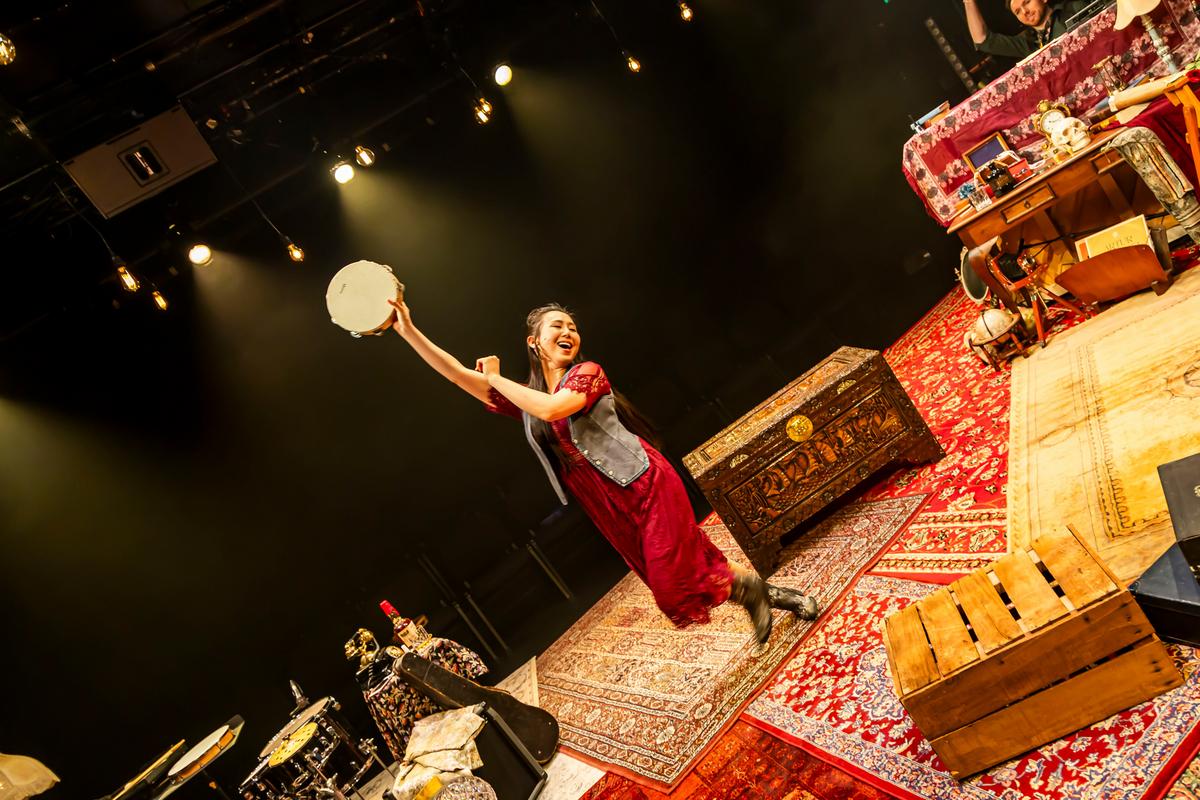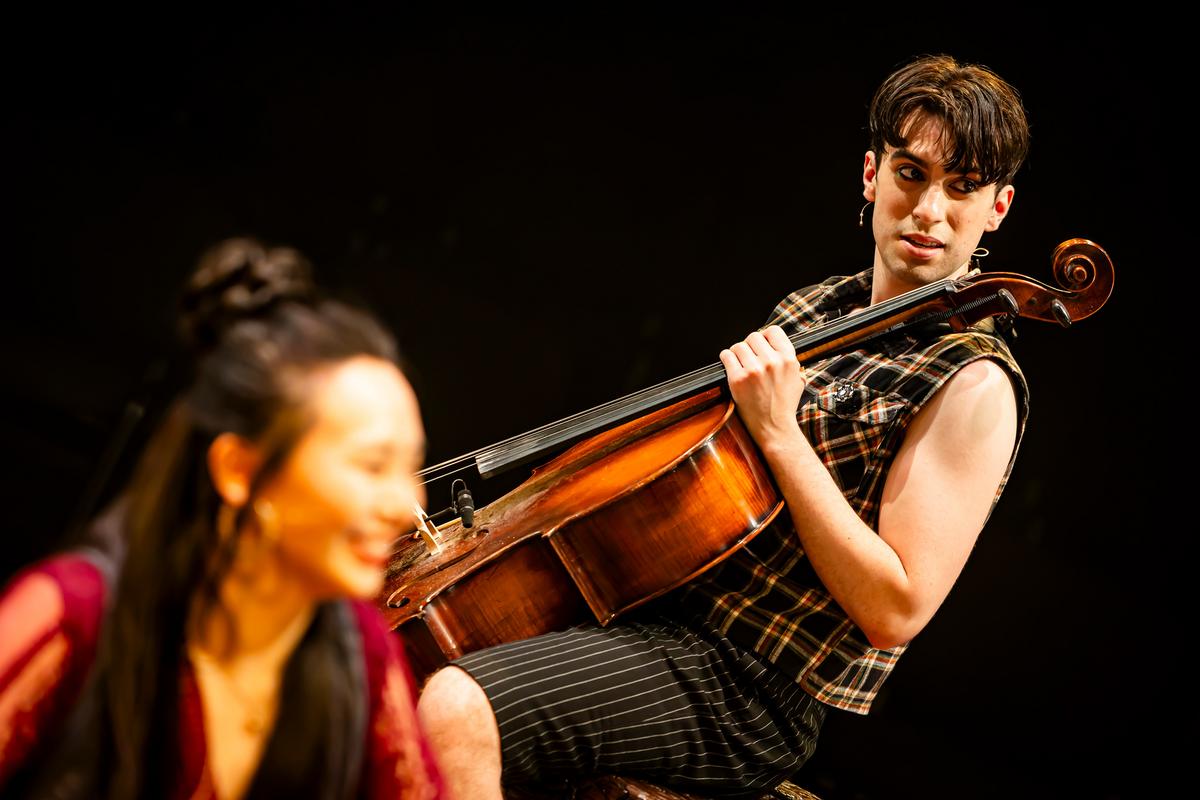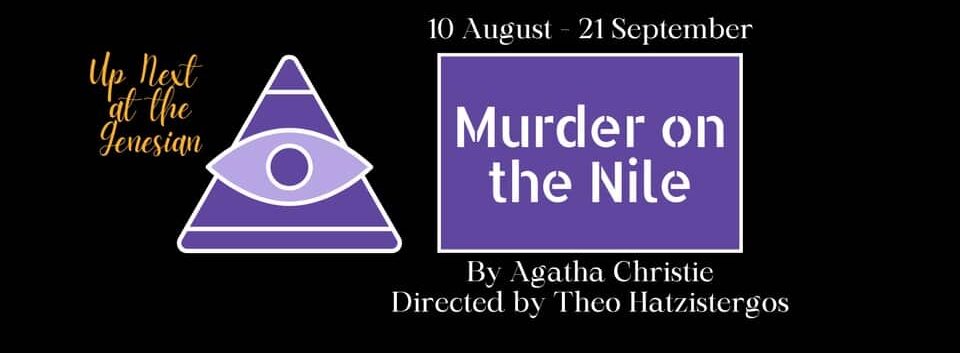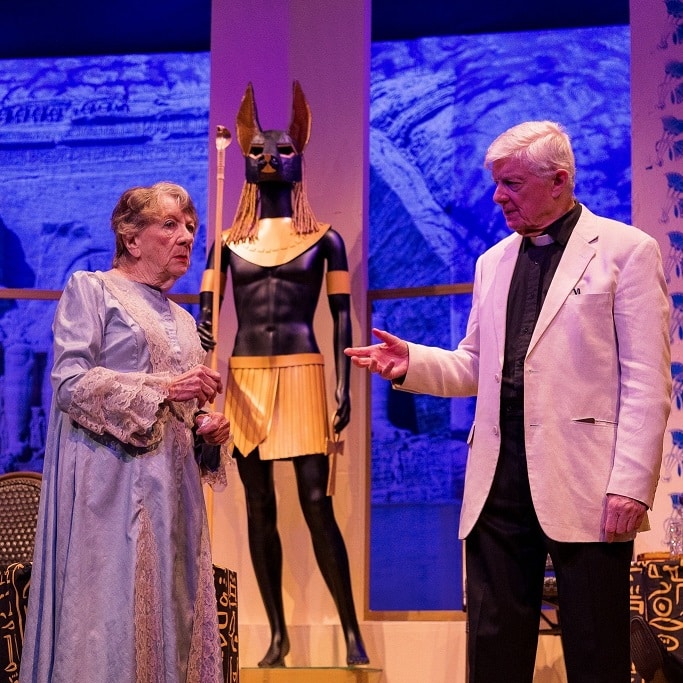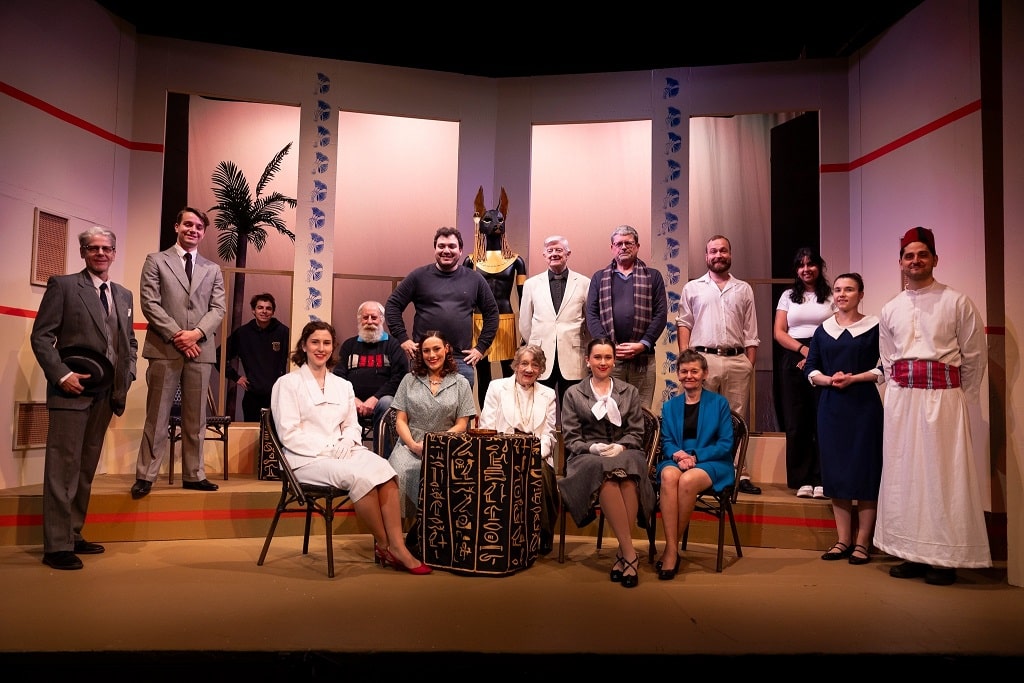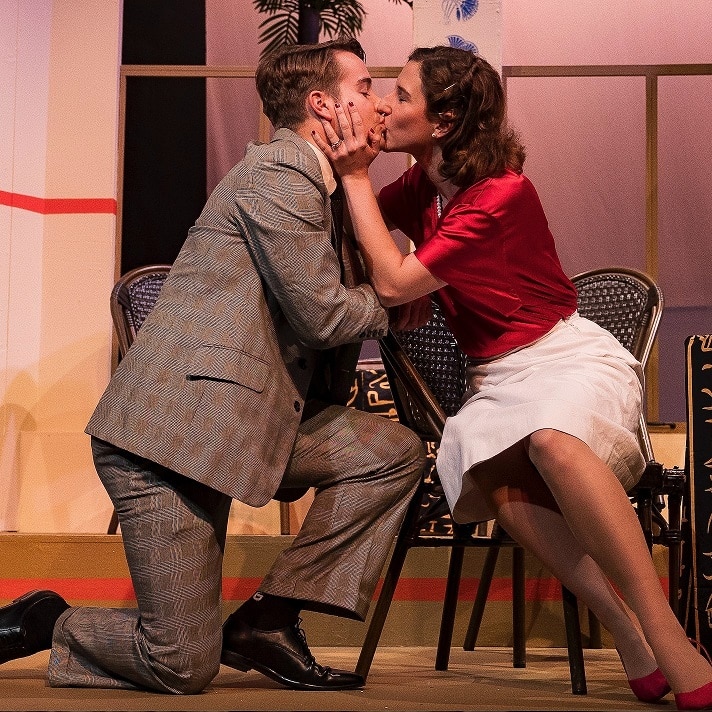Written in 1980 by Lyudmila Razumovskaya and later adapted into film, Dear Elena Sergeevna remains relevant as an exploration of morality, humanity, and the darker side of ambition. Elena is a schoolteacher who is about to celebrate her birthday alone while her mother is in hospital.
Her quiet, humble evening is interrupted by a group of her students who visit to celebrate, or so they say, bringing gifts and alcohol. Their true intention is masked by their polite manners and youthful joviality, trying to bring Elena onside so she willingly helps them with a secret plan. But she refuses to be their accomplice, so the students hold Elena captive as the evening descends into a tense battle between different generations and ideologies.
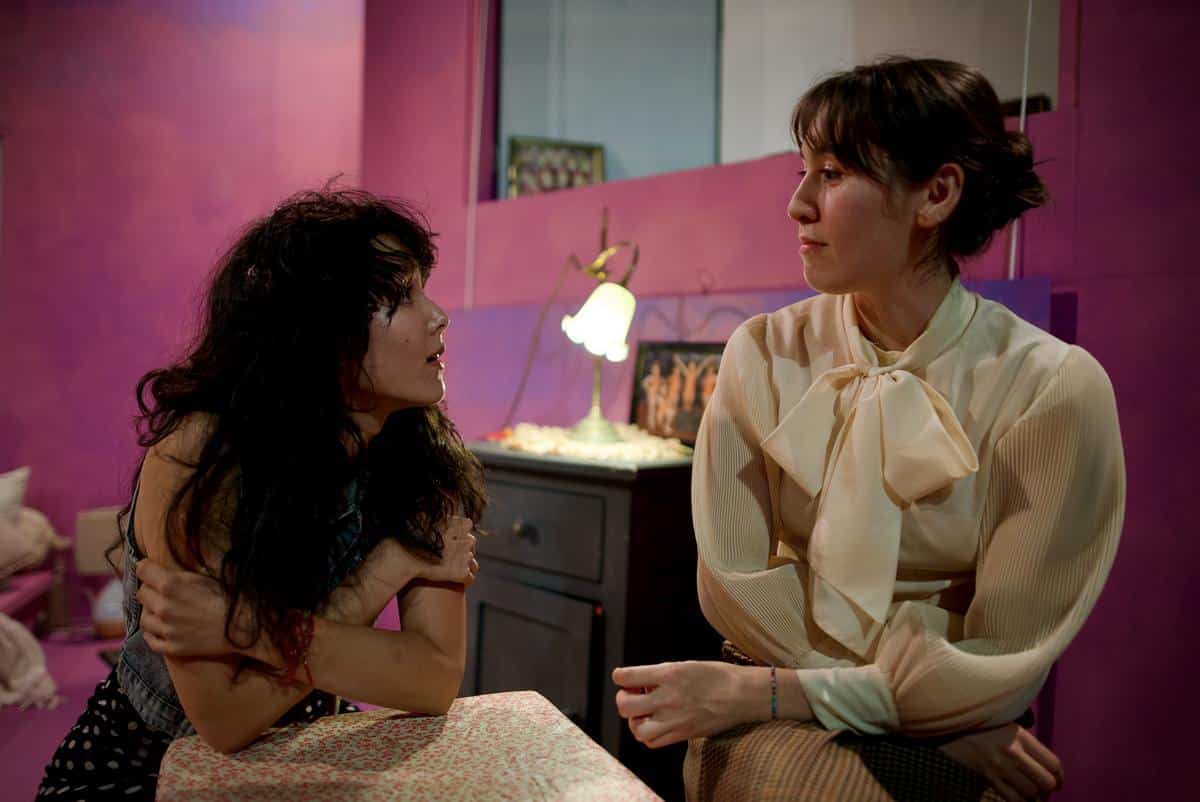
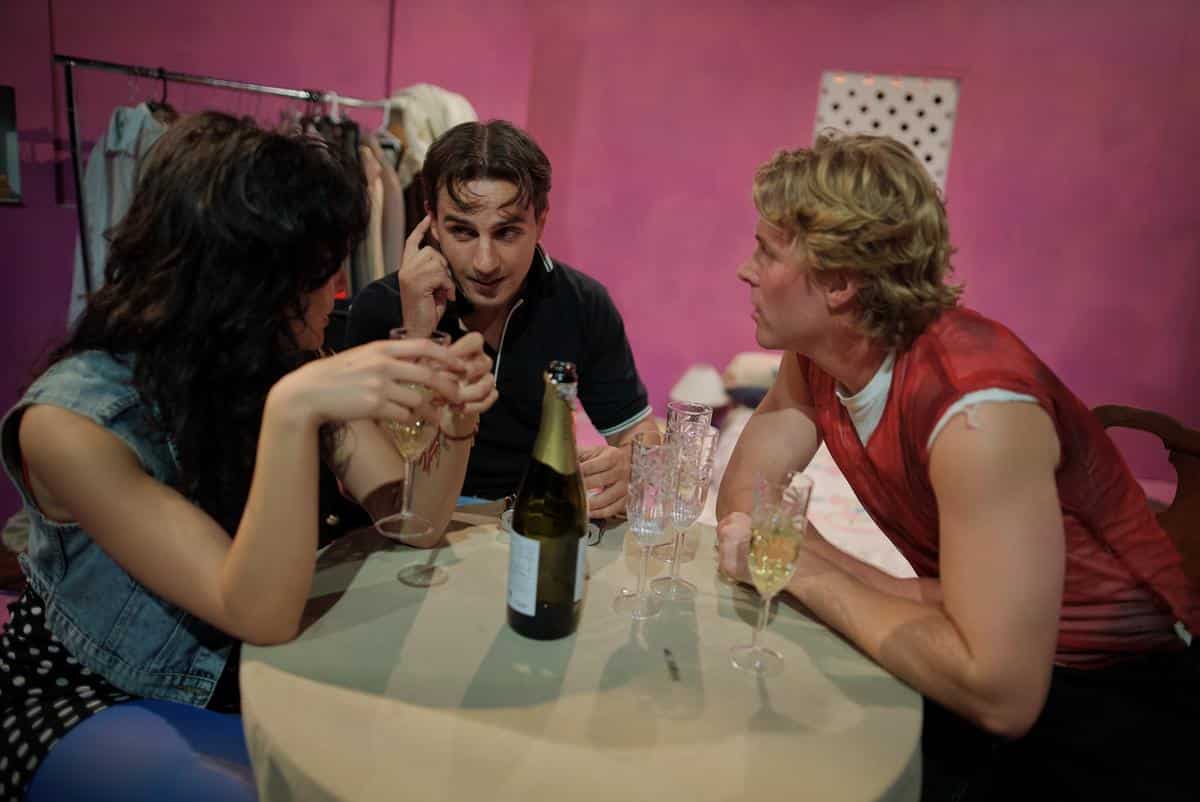
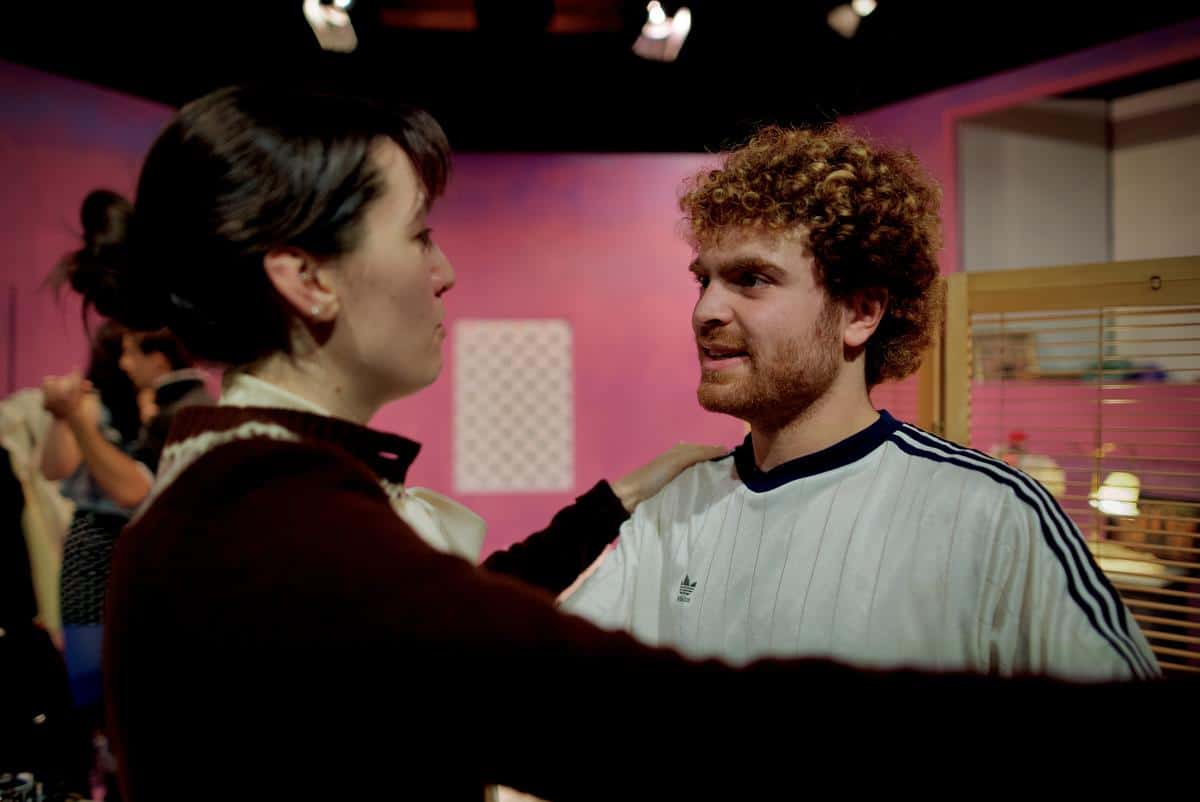
The current production at The Old Fitz Theatre, directed by Clara Voda, doesn’t quite manage to capture the sense of danger and tension so evident in the script. The cast try their best with string performances. Teodora Matović is well cast as Elena, convincingly embodying the bookish, conservative and idealistic teacher. Toby Carey, Harry Gilchrist, Faisal Hamza and Madeline Li brought the students to life with energy and exuberance, even if they sometimes stumbled on their lines. Each was perfectly cast for their respective character.
The only thing missing was tension. At no point did I feel concern for Elena’s safety or fear what students may be capable of. Much of the subtleness in the script was missing. There were many lost opportunities where menace and terror could brood underneath the ideological conflict, but the emotions were big, loud, and shallow.
Elena’s outburst fell flat despite Teodora’s excellent physical performance, embracing the emotions completely. It was just the wrong directorial choice. I could barely hear anything being screamed and failed to have any emotional reaction to what should have been an incredibly powerful moment. Most of the important emotional moments were the same: big and loud rather than powerful.
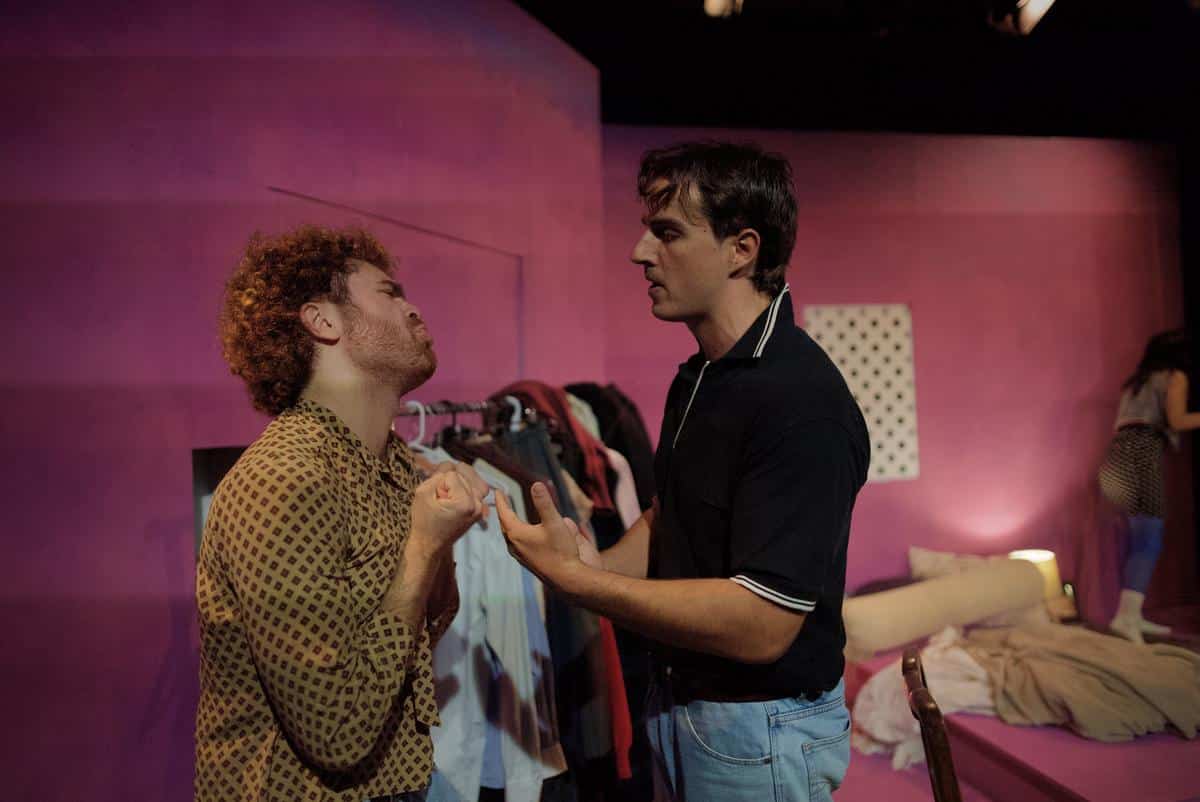
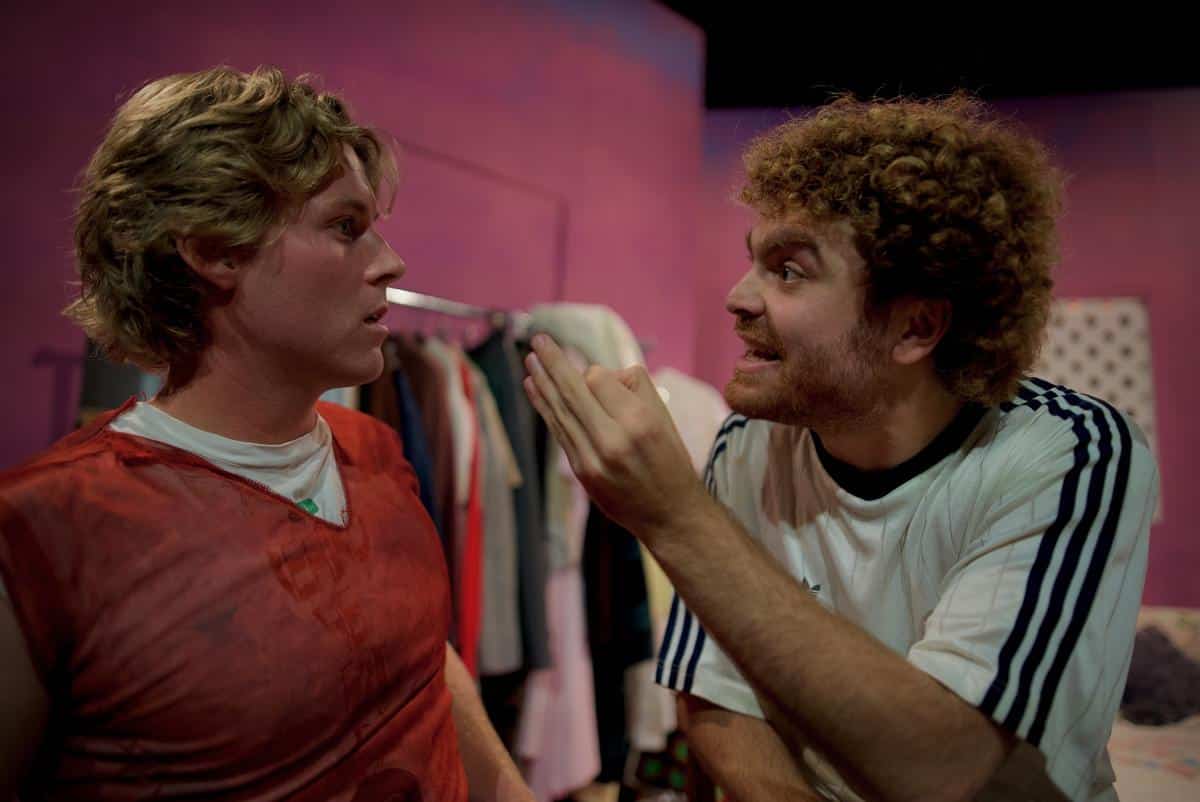

I liked how the characters were always engaged in some activity, even when they were not the focus of the story. There was always something else going on, and that level of detail is commendable. The actors were almost always on stage, so keeping busy and interesting when you don’t have any important plot action to deliver can be challenging, and they did this skillfully. I also really enjoyed how the dialogue was dynamic, with characters constantly talking over each other like we do in real life. Unfortunately, that wasn’t enough to immerse me in the performance, and by the end of the play, all I could think about was what could have been. It’s still a great, timeless story. Maybe next time.
Dear Elena Sergeevna is now playing at the Old Fitz Theatre in Woolloomooloo until the 11th of April.
To book tickets to Dear Elena Sergeevna, please visit https://www.oldfitztheatre.com.au/dear-elena-sergeevna.
Photographer: Noah David Perry
